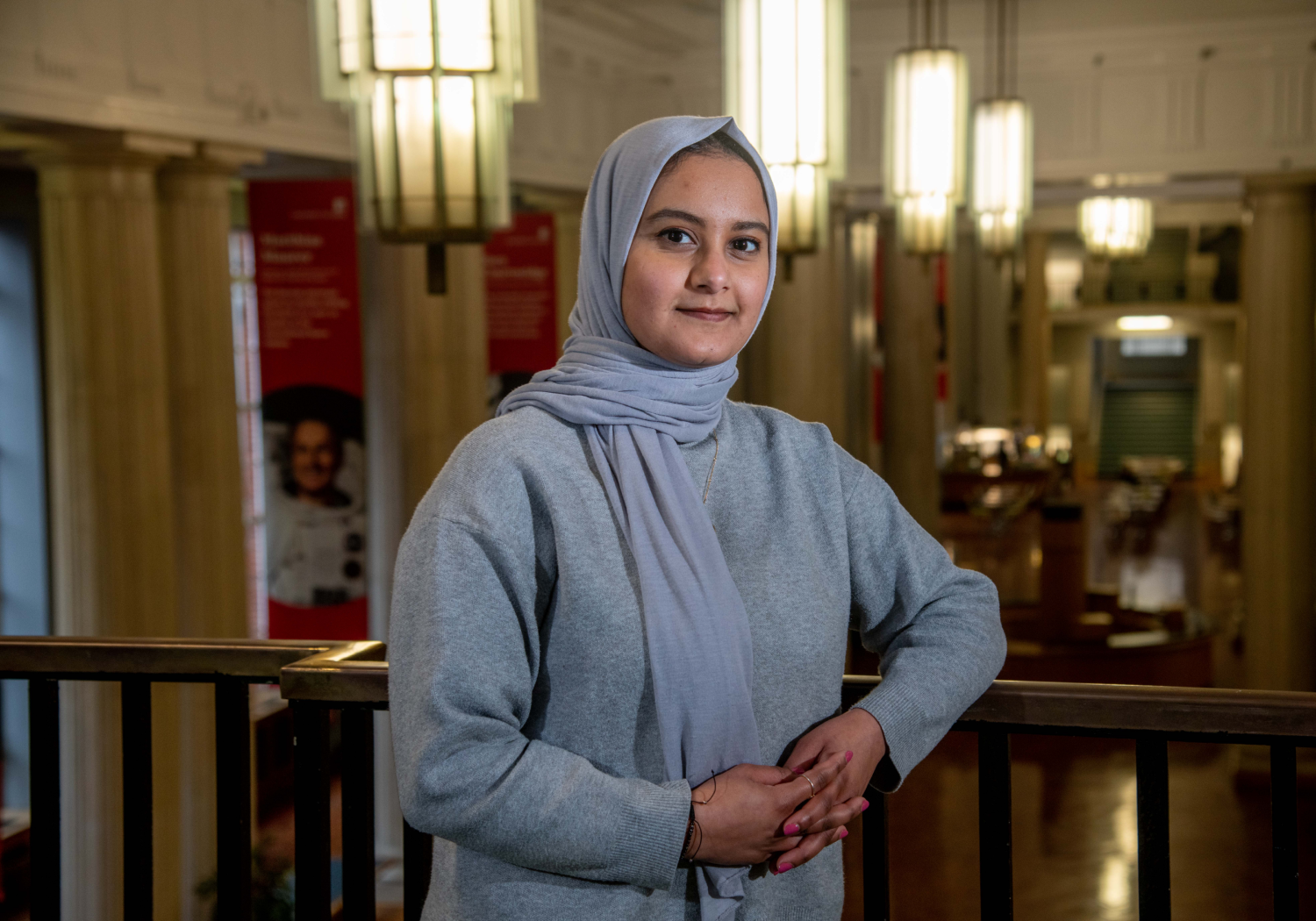Combatting disease in the world’s poorest communities

Bushra Hasan’s doctoral research is addressing issues of sanitation and infection control among some of the most disadvantaged people in the world.
Her work is focused on the transmission of respiratory infections in shared toilets, particularly in informal settlements in low and middle-income countries, where poor quality housing was built with little planning, infrastructure or local services. “I’m looking at the risk of transmitting disease in communal toilets and how to improve the design of sanitation facilities in these informal settlements.”
Bushra heard about Leeds’s renowned Water Sanitation and Health (WASH) team while studying for her Master’s degree in Manchester. Funding from donor Phil Dolan (Fuel and Energy Engineering 1977) is enabling her to study for her PhD with the WASH team, supported by the resources of the Government-funded Water-WISER Centre for Doctoral Training at Leeds.
From when I was studying for my undergraduate degree, I always wanted to go into research, and hopefully this will help to make a practical difference to people’s lives.
“I’m looking at how people behave in shared toilet facilities, and the impact this can have on the transmission of COVID-19 and other respiratory viruses,” says Bushra. “I’m looking at air quality, ventilation and observational data of people’s behaviour – and assessing where there is a greater risk of disease transmission.”
As well as studying behaviour in shared toilets in the UK, Bushra has twice travelled to study shanty towns in Delhi. There she worked alongside a local NGO to look at what sanitary facilities are available and how many people are sharing them – and to hold focus groups with community members. “Ultimately this is all working towards improved design and better ventilation, particularly for shared toilet facilities in informal settlements.”
Bushra is grateful for the support she has received: “I wouldn’t be able to do this without the funding,” she says. “I come from a working class background and I’m the first in my family to go to university.
“From when I was studying for my undergraduate degree, I always wanted to go into research, and hopefully this will help to make a practical difference to people’s lives.”
When you support the University of Leeds, you play a vital role in supporting our University’s outstanding research and education.
If you would like to give to Leeds, please visit our giving page.